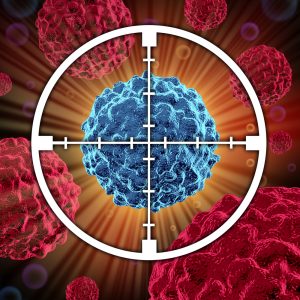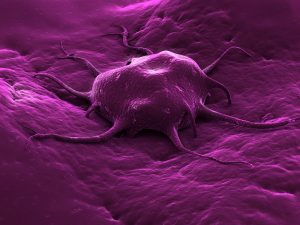June 28, 2018 -- Immunotherapy is undoubtedly one of the most influential and exciting fields of our time, with an ability to unlock the foundations of diseases and move one step closer to curing cancer. Technology and advanced research are allowing this science to flourish, and treatments have been developed targeting the ways cancer can mask itself and remain undetected in many cases.

For example, non-small cell lung cancer and malignant pleural mesothelioma share many commonalities, yet are distinct cancers that are both seeing successful outcomes through immunotherapy drug trials targeting the PD-L1 protein. This relationship sheds light on the ways previous research that benefits rare cancers has often been a product of work done in the field of more common malignancies. Looking into ways PD-L1 can be targeted for lung cancer led to the discovery of the other types that share this common foundation that could also benefit from this information and treatment. The mere expression of the protein is not a guarantee that drug therapy will be an option, and if it is, it may not shrink tumors or impede the progression of a disease.

Personalized cancer vaccines would help provide the following for rare cancer patients:
- Potentially faster diagnosis and analysis of histological data due to the biopsy and vaccine process.
- A cancer treatment that is tailored to a patient’s specific needs and would correct the uneven and disparate ways currently approved forms of immunotherapy may not be effective for all cancer patients.
- Potential options for those who are not eligible for the standard of care or more traditional courses of care. For example, patients with unresectable tumors who are not candidates for surgical options, or those with late-stage diagnoses where chemotherapy is not considered a beneficial treatment.
- Offers a treatment that would be widely available, as opposed to orphan drug therapies or experimental options where the effectiveness is not proven.
This represents what seems to be a small shift from one protein to another, but has the potential to revolutionize how immunotherapy is able to be administered as a treatment. Rather than a blanket attempt to attack cancer cells, personalized cancer vaccines are based on an individual’s unique tumor DNA and RNA expression. Because the treatments are so specific and accurate, it helps eliminate some of the problems patients face in the form of ineffective or inconsistent drug therapies currently on the market. In the past, those with rare cancers have had to either wait for orphan drug research and funding and experimental therapies to expand their scope to other malignancies, like lung cancer treatments becoming available to pleural mesothelioma patients.
Precision medicine and cancer vaccines are evolving one step further to include the use of stem cells in the development of each treatment. While still in the development stage, preliminary research performed on mice has shown the most effective use of stem cells are in prohibiting progression of disease, as well as decreased tumor recurrence after removal through surgery. In the study, researchers re-engineered skin cells taken from mice to become induced pluripotent stem cells, or iPS cells. This process results in mature cells taking on the characteristics of stem cells in the embryonic stage since stem cells often do express many of the same proteins found in tumor cells. The hope was that these iPS cells, when introduced, would be able to train T cells to attack cancer cells that express the same proteins. This could be a further breakthrough for those who have a hereditary predisposition or who have been exposed to carcinogens like asbestos, as stem cells could be introduced in an attempt to prevent cancer from forming in those at risk.

Copyright © 2018 scienceboard.net






